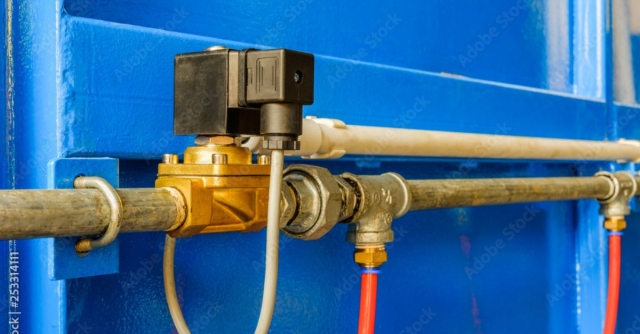Solenoid valves play a critical role in controlling fluid flow, making them indispensable in industries and households alike. These electromechanically operated devices use an electric current to control the operation of a valve, offering precision and efficiency in processes where fluid management is crucial. Whether you’re working with water, gas, or other fluids, learning about the advantages of solenoid valves will highlight why they are such a valued component in countless applications.
Energy Efficiency
One of the standout advantages of solenoid valves is their energy efficiency. These valves use electricity only during the actuation process, requiring minimal power to sustain their position. This translates to lower energy consumption and, subsequently, reduced operating costs for businesses and households alike. For industries aiming to optimize their processes and manage resources effectively, solenoid valves offer a smart and cost-efficient solution. By choosing solenoid valves for common applications like heating systems or irrigation networks, users can take a significant step toward sustainable energy practices without compromising on performance.
Rapid Response Time
When precision and speed are non-negotiable, solenoid valves deliver. Their rapid response time means you can control fluids instantaneously, ensuring efficient and accurate operation. This feature is particularly useful in applications such as medical equipment, refrigeration units, and automotive systems, as delays in fluid control could lead to undesirable outcomes. The ability to respond quickly to commands enhances the overall performance of these systems and their safety and reliability. Solenoid valves provide a level of precision that simplifies complex processes, making them a top choice in high-performance industries.
Versatility
What makes solenoid valves even more appealing is their unmatched versatility. Since they come in a variety of designs, sizes, and materials, you can adapt them to suit an extensive range of applications. Whether it’s controlling water flow in washing machines, managing air pressure in pneumatic systems, or enabling cutting-edge industrial automation, solenoid valves prove to be universal solutions. Their ability to accommodate different pressure levels, temperatures, and fluid types means you can implement them seamlessly across sectors, making them a flexible choice for both domestic and commercial use.
Reliability and Durability
Solenoid valves offer a long lifespan and dependability. These devices require minimal maintenance, offering users peace of mind in the longevity of their investment. Their durable construction ensures consistent performance, even under challenging conditions, and reduces downtime caused by equipment failure. For businesses, this reliability translates into uninterrupted operations and minimized maintenance costs. For households, it means long-term performance without the need for frequent replacements or repairs.
The advantages of solenoid valves make them a go-to choice for anyone looking to achieve efficient and reliable fluid control. From energy savings and fast operation to versatility and durability, these valves offer clear, practical benefits across a wide range of uses. If you’re considering integrating solenoid valves into your systems, now is the time to explore their possibilities and discover how they can transform the way you manage fluids.






